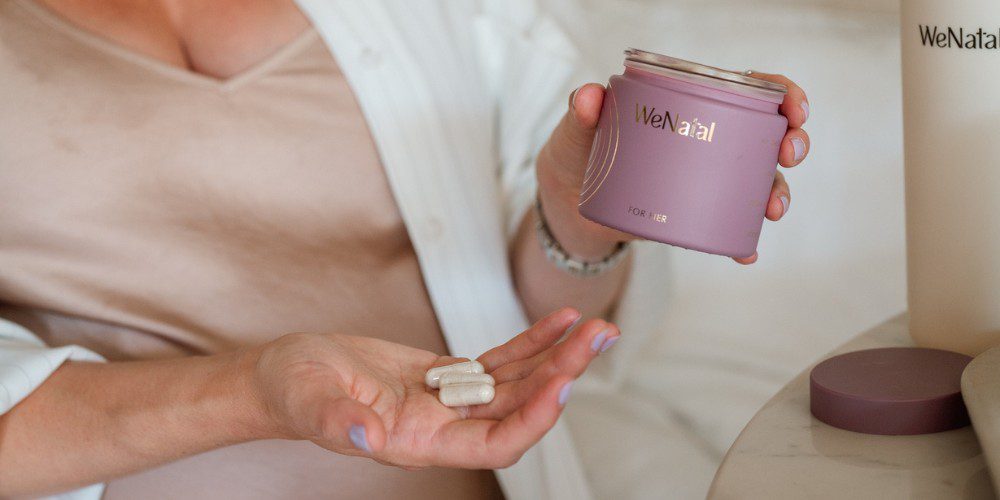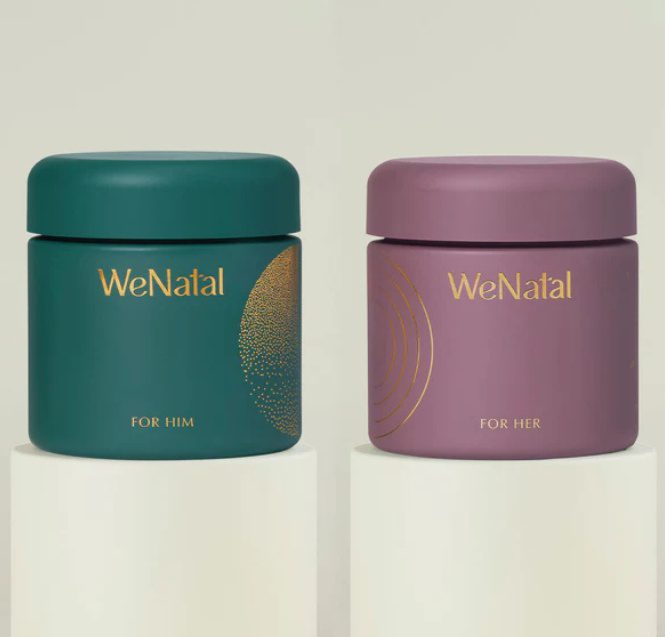Can taking prenatals increase fertility? Here’s what you need to know if you’re planning to start TTC

If you’re gearing up to try for a baby, chances are you’ve already come across someone talking about prenatal vitamins somewhere online.
You’ll probably also have a few (or perhaps many) questions as a result: Can taking prenatals increase fertility? Do they help with conception? Should you start them before you’re actually pregnant? And what about your partner – can men take prenatal vitamins for fertility too?
The bottom line? Prenatals do play a role before pregnancy, and can be a key part of preconception planning. And to find out why, we’ve partnered with WeNatal, the team behind the very first comprehensive prenatal vitamin supplement for women and men.
Created by moms and health advocates who saw real gaps in prenatal nutrition, they’re leading the charge here, redefining prenatal health with a science-backed, high-quality approach to fertility and pregnancy, including clinically recommended dosages in critical nutrients like iron, choline and methylated folate.
Unlike most prenatals that include around 12 nutrients, WeNatal packs in 24 key ingredients, all chosen in their most absorbable, clinically backed forms.
Jump to their website to explore their range – and if you’d like to give them a try, TRB readers get a free Rest + Digest Magnesium pouch with their first prenatal subscription ($35 retail value).
Now, here’s what you need to know about prenatal vitamins and fertility, if you’re TTC (Trying To Conceive) or planning to be.
Can taking prenatals increase fertility?
Prenatal vitamins don’t directly increase fertility or guarantee conception. Instead, they create the right nutritional environment for egg quality, ovulation, and early fetal development, supporting your body’s natural ability to conceive and sustain a healthy pregnancy.
And when it comes to nutrients, the big players here for women are:
- Folate – for baby’s early brain and spinal cord development
- Vitamin D – for support with calcium absorption and baby’s bone development
- Choline – for supporting baby’s brain and cognitive development
- Iron – for a healthy placenta, and preventing anemia
- Omega-3s – for supporting baby’s brain, eye and nervous system development
Together, these nutrients help prep your body for a healthy pregnancy in ways your everyday diet might not fully cover.
Over and above these top picks, it’s also about making sure that you’re getting enough nutrients in combination, and in the right amounts. WeNatal for Her ensures that every one of its 24 nutrients has a purpose, helping your body create the healthiest foundation possible before conception.
Do prenatal vitamins help with conception?
Yes, prenatal vitamins could help with conception, just not in the way you might imagine. They’re not fertility meds and won’t treat any baseline infertility problems, but they can support some of the key processes that matter.
This means that, as well as laying the foundations for a healthy pregnancy and supporting baby’s development from the get-go, a really good prenatal can also supply top nutrients like folate and vitamin D that:
- protect egg health at a cellular level
- support early embryo development and implantation
- reduce the risk of early pregnancy complications
Okay, so when should I start taking prenatal vitamins?
You should start taking a prenatal at least three months before you start trying.
Eggs and sperm take about 90 days to mature, so this window gives you time to build up your nutrient reserves.
If you start later, or even once you find out that you’re pregnant, it’s still worth it (prenatals are safe to take during pregnancy and are always beneficial) but getting in early gives you a really strong foundation.

Can men take prenatal vitamins for fertility?
The short answer is yes, men can take prenatal vitamins. And here’s the kicker – they really should.
It does take two to make a baby, with male partners contributing 50% of baby’s DNA, and male factors contributing to infertility in up to 50% of couples struggling to conceive. But we know that clichés can get old fast when you’re TTC.
What you really want is actionable, reliable support, and WeNatal is one of the only brands offering a dedicated men’s prenatal (WeNatal for Him) to optimize sperm health alongside women’s fertility support.
Why (and how) men’s needs look different
Your partner shouldn’t just grab your bottle of prenatals. Women’s formulas are often higher in iron, which men don’t need.
Instead, men need specific nutrients for sperm health and DNA support, like:
- Zinc – for sperm motility, morphology and count
- CoQ10 – for sperm motility and count
- Folate – for sperm production and DNA synthesis
- Omega-3s – for sperm motility, morphology, count and testicular health
WeNatal for Him is formulated with nutrients proven to support his overall reproductive health.
In fact, research shows antioxidants can improve sperm health up to four times, which is why top-notch antioxidant ingredients like CoQ10, zinc and NAC feature prominently in the WeNatal for Him formula.
How to choose the right prenatal
Walk into any pharmacy and you’ll see a wall of options, but not all prenatals are created equal. A good one is backed by science, contains nutrients in the right doses and forms (like methylated folate instead of folic acid), and tested so you know what’s actually inside.
WeNatal’s approach to prenatal formulation checks every box – clinically recommended doses, methylated forms for maximum absorption, and third-party testing to verify quality.
Key nutrients to look for:
- Methylated folate – The most bio-available form of folate
- Choline
- Vitamin D
- Iron
- Omega-3s
How much iron is in prenatal vitamins?
The answer is, it depends – but the American College of Obstetricians and Gynecologists (ACOG) tells us that pregnant women need at least double the amount of iron compared to non-pregnant women.
This is why WeNatal for Her contains 18 mg of iron as Bisglycinate Chelate – a highly absorbable form of iron which is well tolerated and gentle on the stomach.
Worth an add-on – Magnesium
Magnesium is a nice extra when you’re TTC and dealing with the stresses that can so often come with it, supporting stress, sleep, and blood sugar balance.
WeNatal is offering TRB readers a free month’s supply of Magnesium when you start a subscription, which makes it easy to layer into your routine.
Your TTC (or planning to be) checklist – prenatal dos and don’ts
- Do start prenatals at least three months before trying, if you can.
- Do look for methylated folate, vitamin D, iron, and omega-3s in absorbable forms.
- Don’t ignore your male partner. It’s a good idea for him to take a specific prenatal for men in tandem with you.
- Don’t rely on diet alone; nutrient gaps are common, even if you do prioritize a really balanced plate.
Taking a prenatal is an actionable, proactive step you can take today if you’re TTC, or planning to be. And whilst it won’t make you more likely to conceive, it does help your body (and your partner’s) be as ready as possible.
Remember, WeNatal was designed with both parents in mind as the only comprehensive prenatal system that supports her body, his sperm health, and their shared goal of a healthy start.
Want to try WeNatal for yourself? Whether you’re just starting to think about TTC, already pregnant, or navigating postpartum recovery, WeNatal supports your unique journey at every step.
Jump to their website and explore their science-backed prenatal system – and get your free month’s Magnesium with your first subscription.






